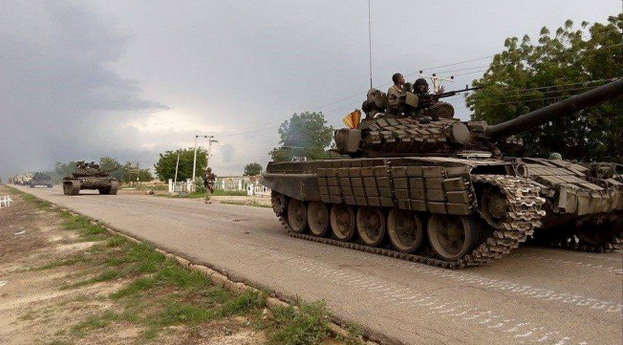
A dominant perception of the military in many societies is that of an essentially parasitic institution that consumes humongous resources without requisite economic productivity. Yet, the leech disposition of the military on society is accepted as an inevitable price that must be paid for its critical role of protecting the territorial integrity and guaranteeing the continued existence of the polity as a cohesive entity. However, the example of leading industrial countries indicates that the military can indeed be an important contributor to a country’s scientific and technological development as well as a key stimulator of economic growth.
Advanced military research in the United States, for example, is known to have played a significant role in the emergence of the internet as well as leading to breakthroughs in diverse sectors with positive implications for national development. The military-industrial complex has become established as an indispensable, mutually reinforcing, feature of advanced economies helping to guide and fund research, stimulate investment, create jobs and boost prosperity.
The immense yet untapped potentials of the Nigerian military in this regard was reiterated by the Director-General, Defense Research and Development Bureau (DRDB), Air Vice Marshall Jumo Osahon, at the Third National Conference organized by the Society of Leather Technologists and Chemists of Nigeria in Samaru, Zaria, Kaduna State. AVM Osahon delivered a paper on “Indigenous Leather Production and Military Kitting: The Armed Forces of Nigeria Perspective” at the conference, which had as its theme, “The Contributions of Leather Science, Technology and Innovation to the Nigerian Economy and National Security”.
With a personnel strength of over 200,000, AVM Osahon revealed that the Nigerian military requires at least N9 billion annually to kit its officers and men with a pair of working shoes and boots for each soldier. He estimates that over half a million pairs of leather ware can be produced for the Nigerian army, navy and air force by the indigenous leather industry at a cost of N30000 and N15000, respectively, for a pair of working shoes and combat boots each.
In the words of the DRDB DG, “The amount will double if we are to provide two pairs of each per soldier every year. This huge sum of money if channeled to the indigenous leather industry will go a long way in revamping the sector and improving our national economy as well as security forces and provide jobs for our teeming youths. However, the leather industry in Nigeria is yet to take advantage of the huge potential that exists in the military leather requirements of the Armed Forces of Nigeria (AFN)”.
Abia State has already begun to demonstrate how the potential investment opportunities offered by the Nigerian military can be tapped to create jobs, boost local productivity and generate wealth. Governor Okezie Ikpeazu revealed earlier in the year that the military as well as the National Youth Service Corp (NYSC) had placed orders for shoes produced in Aba leading to the generation of revenue worth over N500 million for traders.
Meeting the leather needs and indeed the numerous other needs of the Nigerian military locally will not only help to conserve foreign exchange that would have been expended on imports, it would also enable indigenous entrepreneurs to earn money, pay taxes and enhance state revenues. Achieving this objective, however, will require close collaboration among the various governments, military authorities, the research institutes as well as the private sector.
Apart from meeting the requirements of the military, the country’s local leather industry remains a still largely unexploited gold mine that can be better maximized for self-reliant economic growth and development in other sectors.
END

Be the first to comment